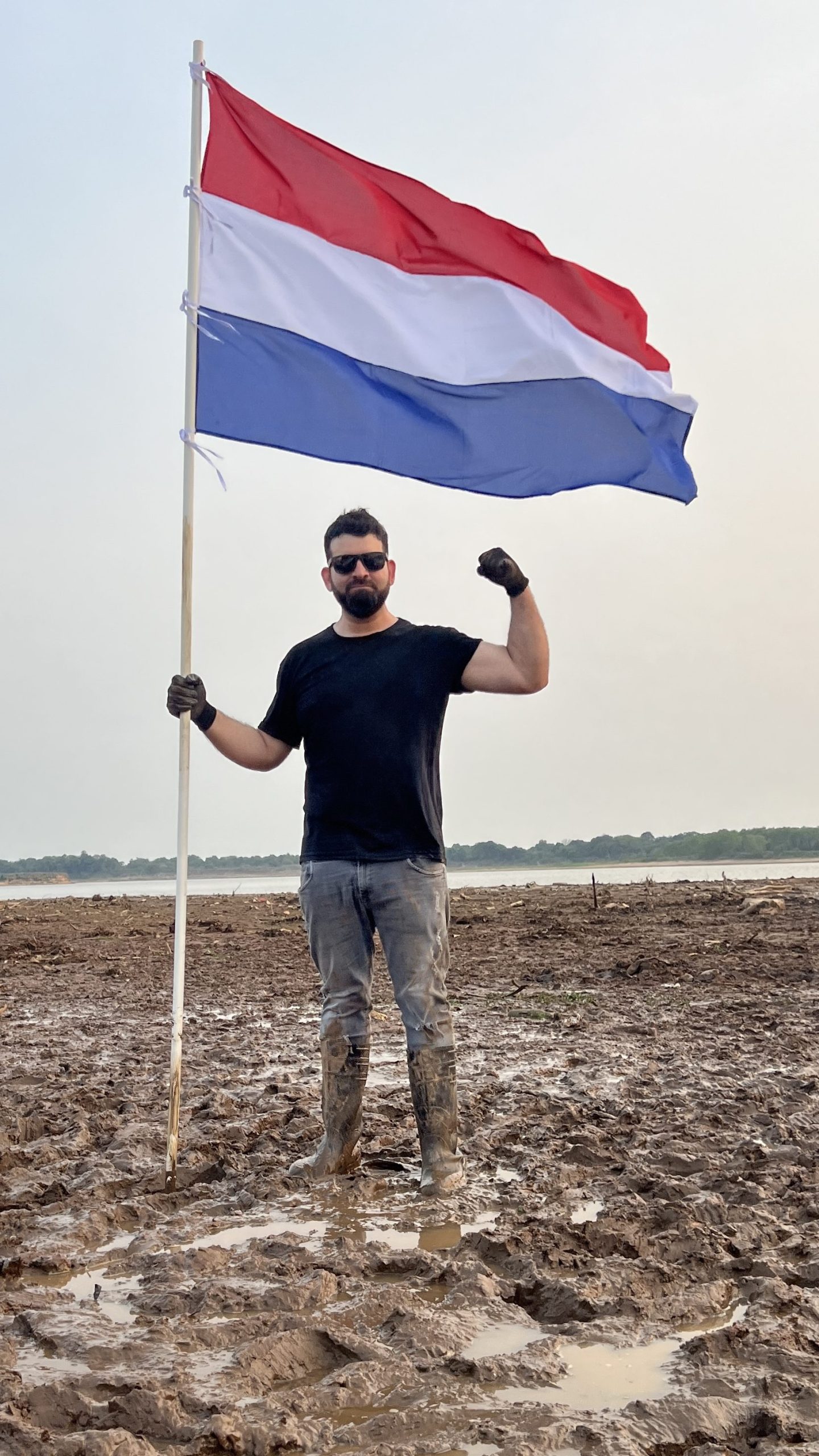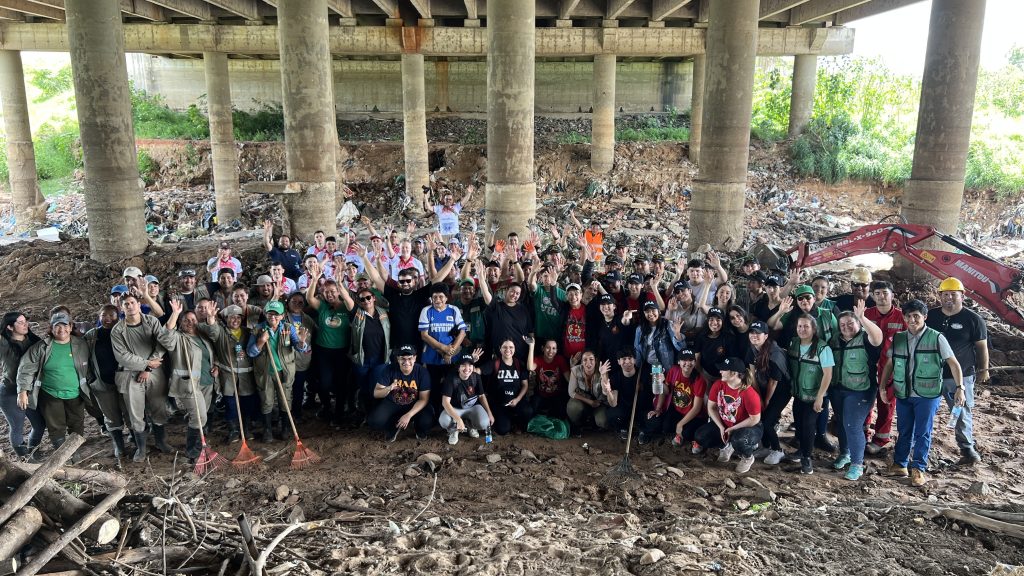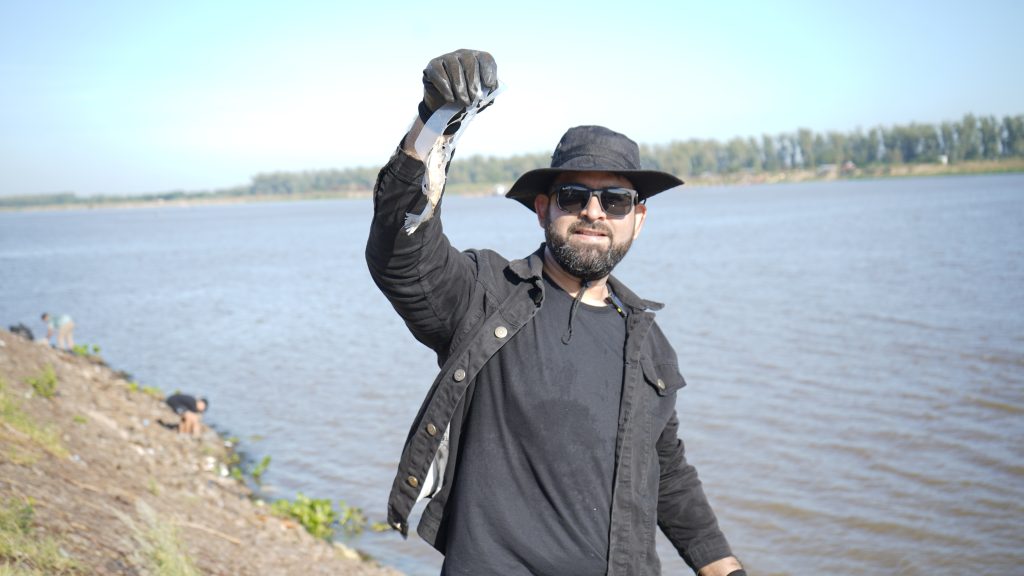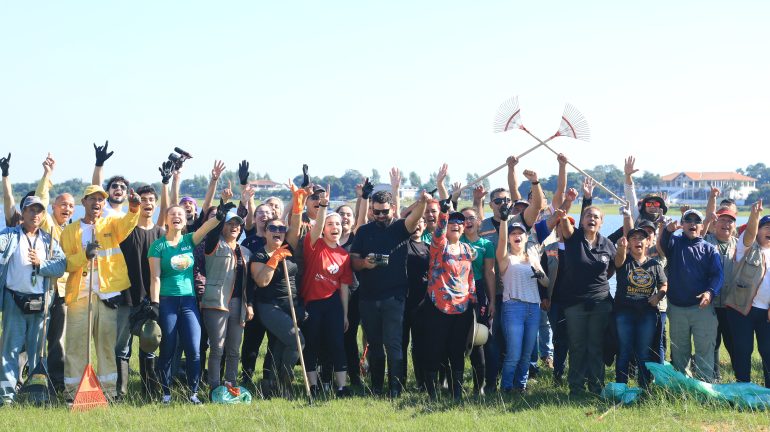An excavation on the dry banks of the Paraguay River in San Antonio, carried out by Elías Benítez in 2024, revealed not only dirt, but tyres, plastic, and general waste. Migratory birds had landed there, unknowingly resting on a hidden landfill. “I dug half a metre and found nothing but rubbish,” he recalls. It showed the necessity of Atrevidos: the volunteer movement cleaning up Paraguay.
That day, 200 volunteers removed over 13,000 kilograms of waste and 577 tyres. It revealed the scale of the problem, and strengthened the movement’s cause.
Atrevidos’ vision

Atrevidos officially launched on March 1, 2024. Within two weeks, the movement gained significant traction online. Benítez and his team organised their first clean-up in Asunción, where 24 people collected 700 kilograms of rubbish in one morning.
“We wanted something big, something real,” Benítez explains. “So we said: let us make Paraguay the cleanest country in the world.”
“My profession is audiovisual production and advertising, but I am also a citizen, a father, a husband, and a grandson,” he adds. “I asked myself: what can I do from my role that truly benefits the country? We see so many projects stuck in planning. We wanted to prove that action is possible now. It is better to take messy action, than to wait for perfect conditions.”
Since then, Atrevidos has led 33 clean-ups in 14 cities, and continues to grow.
How Atrevidos stands out
Unlike traditional environmental groups, Atrevidos speaks the language of social media. It delivers short, engaging videos with a friendly, direct tone. “We make it fun, effective, and easy to understand,” says Benítez.
Their Rating Places video series, where volunteers grade the cleanliness of public areas, has built strong online engagement. “We use clean-ups to raise awareness and spark conversations,” he explains. “We do not claim to solve the entire problem, but we shine a light on what is ignored. Our content goes viral because it feels authentic and immediate.”

Support from business and community
Initially, Benítez funded the campaign through his production company. Now, companies such as Kia and Panal Seguros sponsor events. Local councils provide trucks, staff, and supplies. Over half the clean-up sites have been proposed by volunteers. “At first, municipalities did not take us seriously,” he says. “But once they saw our commitment, they began offering support.”

Atrevidos connects corporate backing with grassroots energy, a powerful combination.
The clean-ups revealed a disturbing truth: much of Paraguay is polluted at the source. In remote areas, streams are contaminated the moment they emerge. “I have seen places where people dump waste directly into the water,” Benítez says. “You can no longer swim in our rivers.”
Last summer, many individuals who visited local streams developed rashes and skin reactions from contaminated water. The environmental emergency is no longer hidden.
Launching trash-free zones
Atrevidos will host a “plogging” event in San Lorenzo on September 14, 2025, combining jogging with rubbish collection. This will mark the beginning of their Trash-Free Zones initiative. “We want areas that are permanently clean. Tourist spots, parks, neighbourhoods, any place can become a trash-free zone, if people commit.”
The first zone will be at El Peñón, near the city of Limpio. These areas will serve as models for sustainable public spaces across the country. “This is a short-term win that builds towards a greater goal.”
A growing movement
Atrevidos has received over 200 invitations to clean new locations, although limited resources restrict their reach. “All the places we cleaned became dirty again,” Benítez admits. “But the point is to expose the problem and rally people around real, visible change.”
“We are not just picking up rubbish, but are rewriting the script on civic action. We do not ask people to be experts, but to care and to show up.” Atrevidos is more than an environmental campaign. It is a civic movement, powered by community, and driven by a bold, hopeful vision for Paraguay’s future.
A growing sense of civic responsibility
This growing sense of civic responsibility can also be seen in other grassroots efforts across the country. During the coldest months of the year, Solidarity Nights brings together volunteers who take to the streets of Asunción to assist people living in homelessness or extreme vulnerability.
Much like Atrevidos, Solidarity Nights was born from the belief that real change does not require waiting for perfect conditions. Whether cleaning rivers or distributing blankets, these movements reveal a new face of Paraguayan civic life, one that is hands-on, united, and unwilling to look away.
Join the movement, or support the mission? Follow Atrevidos on Instagram, or contact the organisation directly via eliasportillo@gmail.com.


